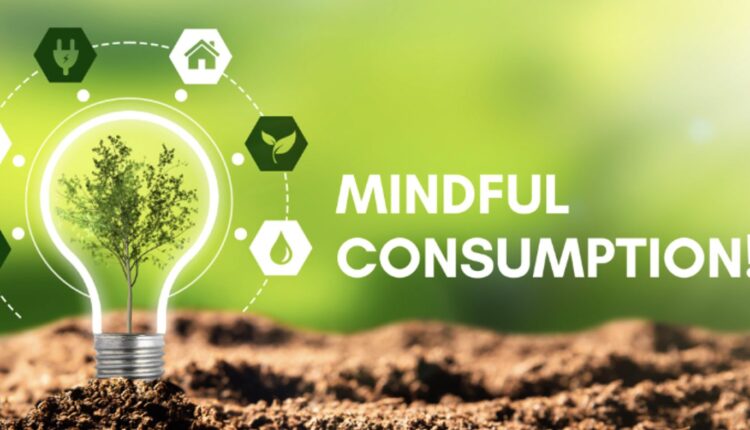Spiritual Materialism and Sustainable Consumption
It may appear odd to read an article that connects spiritualism and consumption. The common perception is that consumption always takes away the mind from spiritualism. However, lifestyle (psychographics) research has helped academicians investigate individual social and collective values, positional signals, and identities within socioeconomic, political, and religious constraints. Spiritualism has the power and potential to focus on what motivates consumers to buy and the decision-making process involved with lifestyle consumption. After all, spiritualism and religion are the world’s most marketed ideas, concepts and beliefs.
The growth of mega enterprises like Patanjali and likes also implies that marketing tools focused on the spiritual aspect of consumption can bring a new dimension to consumption-related research. Most of the available literature tries to establish commitments to green consumerism, as the studies have focused on materialism and the inner drive to acquire goods for conspicuous consumption to demonstrate social status and power. More attempts need to be made to understand the nature of spirituality in the context of lifestyle consumption. Spirituality and materialism are always construed as opposite forces. Such an orientation had led to insatiable and mindless consumption! Such behaviour is perceived as the root cause of unsustainability.
Despite attempts to build green brands and promote mindful consumption for a better future, there have yet to be healthy results. This practical and widely accepted solution to unsustainable consumption needs to be included.
Spiritualism is defined as a search for the sacred, in which people seek meaning through the discovery, experience and transformation of what is held sacred in their lives (Pargament, 1999). What is considered sacred takes different forms for individuals. The sacred includes the concept called God, divine, ultimate reality, transcendent, and any aspects of life that take an extraordinary character by virtue of its association. This may be a religious orientation, but the idea of spiritualism can have a more significant connotation. Spiritualism is a process of personal exploration into one’s inner world that involves aspects of personal growth and blissful experience. Spirituality is the search for meaning; how it is expressed can be evident in the objects and events people hold sacred.
To an element of surprise, materialism has played a role in expressing spiritualism- be it in statues conceived as fair representations of God, objects and artefacts that are symbolic representations of what is ‘sacred’ or chores and practices by using certain rituals and objects. Even objects, animals, and symbols are being treated as sacred – an expression of spiritualism through objectification!
Spiritual materialism is all about adopting spiritual practices to support a material life. It differs from spirituality as the latter is focused on achieving spiritual enlightenment. However, in both cases, material objects play a role in helping people fulfil their spiritual goals- what matters is the underlying driver of people’s behaviour. So, spirituality is a shift in focus from a more materialistic world to a transcendent one. Spirituality plays a vital role in driving consumption. In Hindu philosophy, there is preaching to purify words spoken, food eaten, and life lived.
There is limited research available on spiritualism and consumption. However, in Buddhist literature, spiritualism is linked with mindfulness. In Buddhist literature, mindfulness encompasses an array of cognitive, ethical and emotional dimensions. Mindfulness is a state of being attentive to and aware of what is occurring in the present.
Mindfulness is about paying attention in a particular way: purposefully, in the present moment and without judgment. It occurs naturally and varies across individuals. This has various dimensions like self–regulation, self-compassion, self-acceptance, pro-socialness, and a sense of materialism.
Self-regulation is about modifying inner responses and interrupting undesired behaviour, producing a positive outcome. This is an individual’s ability to regulate and adapt by observing responses established on goals, priorities and environmental demand.
Self-compassion is about being touched by one’s sufferings, a generation of desire to alleviate one’s suffering and treat oneself with understanding and concern.
Self-acceptance is unconditional acceptance of self as a person. Individuals with high self-acceptance scores believe in themselves and embrace values, qualities and behaviour.
Pro-socialness is about cooperativeness, helpfulness, sharing, empathy, and encouraging interpersonal relationships favourable to social development.
Materialism also stands for a set of values related to acquiring products and embracing prosperity.
Mindfulness leads to spiritualism as it has three core components: intention, attention, and attitude. Simultaneously cultivating these three components leads to the state of mindfulness. Re-perceiving enables self-regulation, self-compassion, self-acceptance, pro-socialness and materialism, leading to positive outcomes. So, mindful and sustainable consumption is a behavioural pattern in which individuals satisfy needs in different areas of life by acquiring, using and disposing of goods and services that do not compromise the ecological and socioeconomic conditions of the people to satisfy their own needs.
While spiritualism leads to inner awakening, spiritual materialism is about acquiring materialism through a spiritual route. Mindful consumption is one of the ways to achieve a higher level of consumption by bringing self-regulation, self-compassion, and self-acceptance into consumption practices. Spiritual materialism is the way (path) through which we can develop sustainable consumption for now and for the future.


Immersing myself in this thought-provoking piece, I was captivated by the unique exploration of the interplay between spiritualism and consumption. The concept of spiritual materialism, where material objects aid in spiritual practices, truly resonated with me. It’s a refreshing perspective that challenges the conventional dichotomy between the material and the spiritual. The mention of mindfulness and its role in consumption further piqued my interest, offering a new lens through which to view our everyday habits. Eagerly awaiting more insightful research in this fascinating field. An enlightening read indeed!
“My primary learning revolves around the three pillars of mindfulness: intention, attention, and attitude. This article seamlessly intertwines spirituality and consumerism, prompting me to reflect deeply on my personal choices.”
Brilliantly written , Neha really liked it very much.